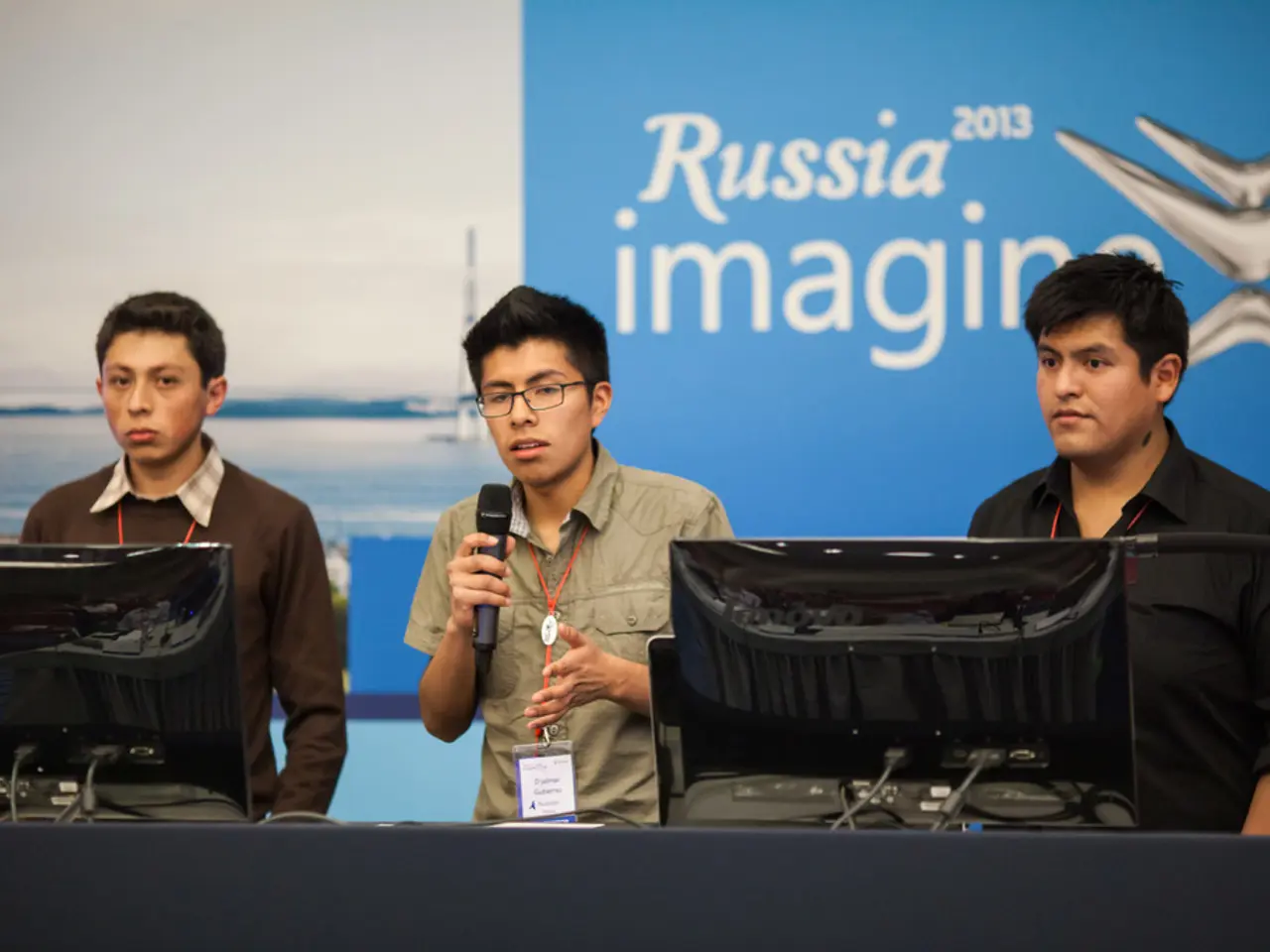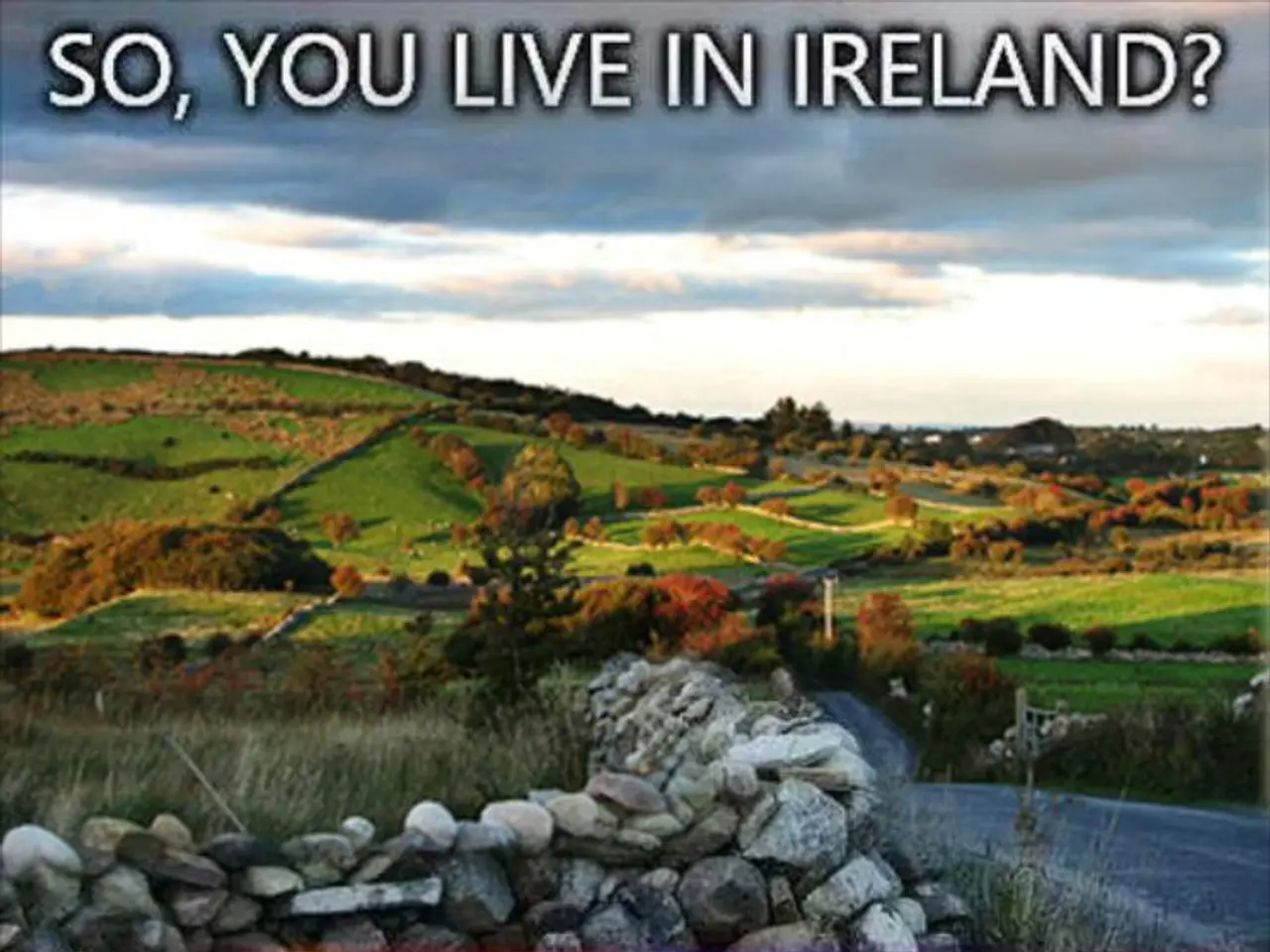Russia's Continued Claim to Ukraine: Putin's Assertion of "Our Ukraine"
Russian leader Putin assertively declares: "That territory where a Russian soldier is stationed, it rightfully belongs to us."
Kremlin head Vladimir Putin has once more echoed Russia's expansive claim towards Ukraine, viewing Russians and Ukrainians as a united people. During a session at the St. Petersburg International Economic Forum, he stated, "In that sense, all of Ukraine is ours," to booming applause.
In his hour-long discourse, Putin scarcely addressed Ukraine, contrary to widespread expectations. However, the Russian president clarified in the subsequent Q&A that his military actions in Ukraine and US President Donald Trump's demand for Iran's unconditional surrender should never be considered related. Russia doesn't seek Ukraine's surrender; rather, they push for the recognition of the territory under their control.
Putin justified Russia's more than three-year-old attack on the neighboring country by referencing NATO's eastward expansion. He contended that Moscow aimed to prevent Ukraine's potential entry into the alliance. Ukraine had gained independence from the Soviet Union in 1991, as a neutral state, according to Putin, and should return to that status.
In response to a question, Putin hinted at a possible conquest of the Ukrainian regional capital Sumy for the first time. "We do not have the intention of capturing Sumy, but in principle, I cannot rule it out," Putin said. Over the past few months, Russian troops have been gradually taking control of more settlements in the Sumy region in northeastern Ukraine. Putin reasoning was that his forces were creating a buffer zone. Currently, the captured territories span approximately 113,400 square kilometers, or 19% of Ukraine's total territory.
Ukrainian President Volodymyr Zelensky's speechwriter Dmytro Lytwyn's response to Putin's statements was firm: "For every step of a Russian soldier, there is a Ukrainian drone," Lytwyn wrote on the network X. Foreign Minister Andriy Sybiha emphasized that soldiers under Russian control bring death and destruction wherever they set foot.
(For more information on Russia's territorial claims and advances since 2014, see enrichment data below.)
Related Topics:
- Russia
- Vladimir Putin
- Ukraine
- Wars and Conflicts
Enrichment Data:
Overview:
Russia currently claims and controls substantial portions of Ukrainian territory, including regions it unilaterally annexed in 2022 and additional areas seized during ongoing military operations spanning 2024 to 2025.
Territories Claimed and Occupied by Russia in Ukraine
- Annexed Regions (Declared September 2022): Russia declared the annexation of four Ukrainian oblasts— Donetsk, Luhansk, Zaporizhzhia, and Kherson—despite only having control over portions of these regions on the ground[5].
- Current Control and Territorial Advances: By mid-2025, Russian forces occupy approximately 113,400 square kilometers of Ukrainian land, encompassing about 19% of Ukraine's territory. This area includes Crimea (annexed in 2014) and parts of the Donbas region seized prior to the 2022 full-scale invasion, along with territories gained since February 24, 2022, during the ongoing war[3][4].
Specifically: - Since February 2022, Russia's control increased by nearly 27,730 square miles (~71,800 km²), approximately 12% of Ukraine, on top of pre-invasion holdings. - By April 2025, additional gains amounted to about 3,100 km² in the eastern front, including the capture of cities like Avdiivka and advances towards Pokrovsk. - In the northeastern front, approximately 500 km² around Kupiansk were taken during operations since late 2024. - Territorial advances have slowed down, with Russia seizing roughly six square kilometers per day in early 2025 and modest weekly gains measured in tens of square miles[2][3][4].
- Russia’s Long-term Demands: Russian President Vladimir Putin continues to demand full Ukrainian capitulation, effectively pursuing control over all territories claimed by Russia, including those not entirely under Moscow’s control at present[1].
(Sources: [1], [2], [3], [4], [5])
- The ongoing military actions in Ukraine, as well as the territorial claims made by Russia, are significant topics in general news and politics, especially in regard to Russia's economic and social cohesion with Ukraine, and its employment policy, given the potential impacts on the regional economy and workforce.
- Despite Putin's assertions that Russia and Ukraine should be seen as a united people, the ongoing war-and-conflicts in Ukraine have led to a severe employment policy crisis, with the displacement of numerous workers and the disruption of economic and social cohesion in the affected areas.




